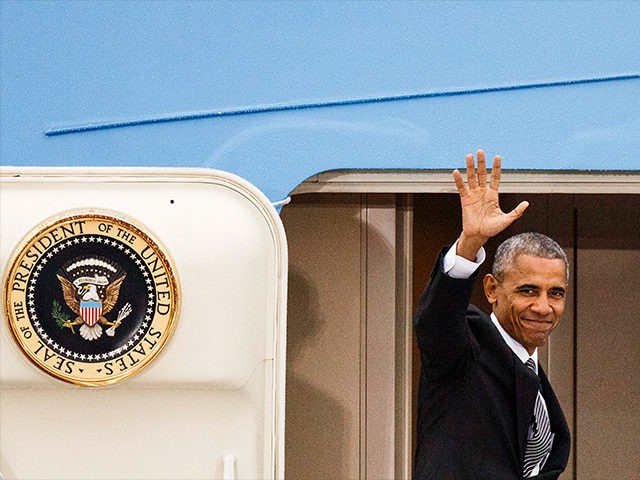The Obama administration’s decision to deny an important easement needed to complete the Dakota Access Pipeline (DAPL) represents one last single-finger salute to Middle America from the outgoing president.
Rural Americans face tough challenges, and by killing the Keystone XL and Dakota Access Pipelines and by imposing several costly regulations on energy development, President Barack Obama has only served to make these challenges worse.
People living in rural areas face high levels of poverty. The U.S. Department of Agriculture estimates 17.7 percent of rural U.S. families live below the federal poverty line, and rural people make approximately 32 percent less money, about $15,800 per year, than people living in urban areas. Obama’s restrictions on energy development have done nothing to alleviate rural poverty rates or grow wages; they’ve only made these problems worse.
Part of the reason for the income gap is people in rural regions do not attend higher education institutions at the same rate as those who live in cities, which is one reason energy jobs are so important in these areas. According to data provided by the Bureau of Labor Statistics, the average annual earnings for oil and gas jobs are about $67,400, a figure that is much higher than the average earnings received by workers in rural areas. This means every family-supporting job killed by unnecessary regulations or government mandates, such as Obama’s proposed methane regulations and the politically motivated pipeline rejections/delays, has hurt workers substantially more in rural areas, where there aren’t as many good-paying blue-collar jobs, than they might in suburban or urban parts of the United States.
Even worse, without the 4.3 million jobs generated over the past several years by the hydraulic fracturing industry, which has largely been opposed by the Obama administration, only five million jobs would have been created since Obama took office in 2009. Without hydraulic fracturing, Obama’s paltry job creation numbers would have been the worst of any two-term president in recent history.
It’s not just about jobs, either. Rural Americans are also disproportionately harmed by energy cost increases because they spend more money on transportation. For example, rural Americans spend about 16 percent more on gasoline than Americans in urban areas because they typically have to drive farther to get the goods and services they need.
Rural Americans are also greatly affected by high energy costs because they are more likely to be employed in energy-intensive industries. For instance, farming requires the use of diesel fuel for tractors and combines. The forestry industry also relies on diesel-powered equipment, and energy costs are one of the largest expenses faced by manufacturers. Every action taken by Obama that has increased energy costs has made these industries less competitive, giving global competitors a significant advantage.
Oil and natural gas account for 35 percent and 28 percent of the total energy consumption in the United States, respectively, and pipeline protests do nothing to reduce Americans’ need for these two forms of energy. The DAPL protests have only served to drive up the cost of producing and transporting oil here at home, and they have the potential to make the United States more reliant on imports of foreign oil.
Obama acted irresponsibly by denying the Dakota Access Pipeline easement because his actions are likely to encourage more pipeline protests in the future and disproportionately hurt rural Americans, who suffer from higher levels of poverty and need more, not fewer, high-paying jobs.
During his two terms in office, President Obama’s energy policies have effectively been a flurry of middle fingers to Middle America. It should come as no surprise rural Americans relished the opportunity to repay the favor by overwhelmingly voting for Donald Trump on Election Day.
Hopefully, President-elect Trump follows through on his promises to lift restrictions on energy development, a move that would help make rural America great again.
Isaac Orr (IOrr@heartland.org) is a research fellow specializing in hydraulic fracturing at The Heartland Institute. Follow him on Twitter @thefrackingguy.

COMMENTS
Please let us know if you're having issues with commenting.